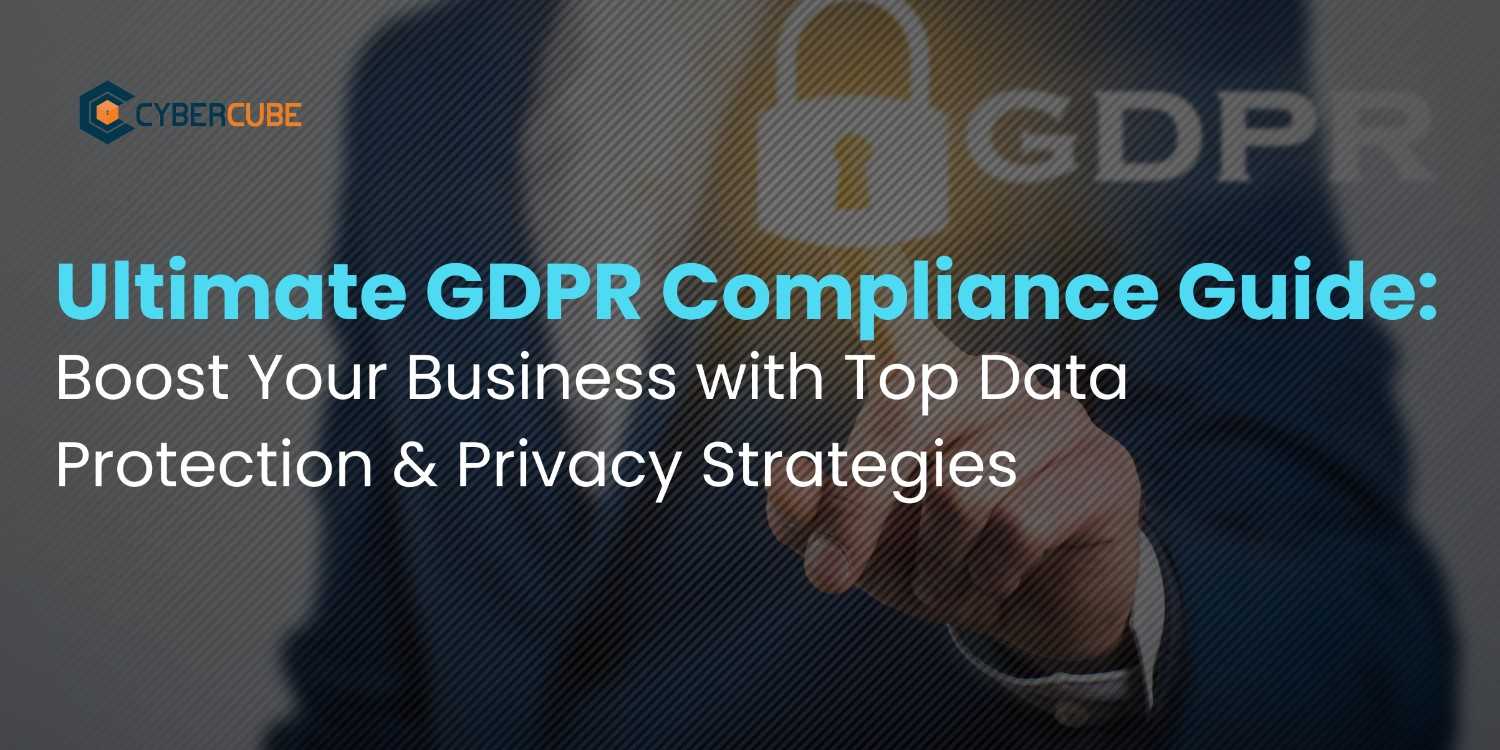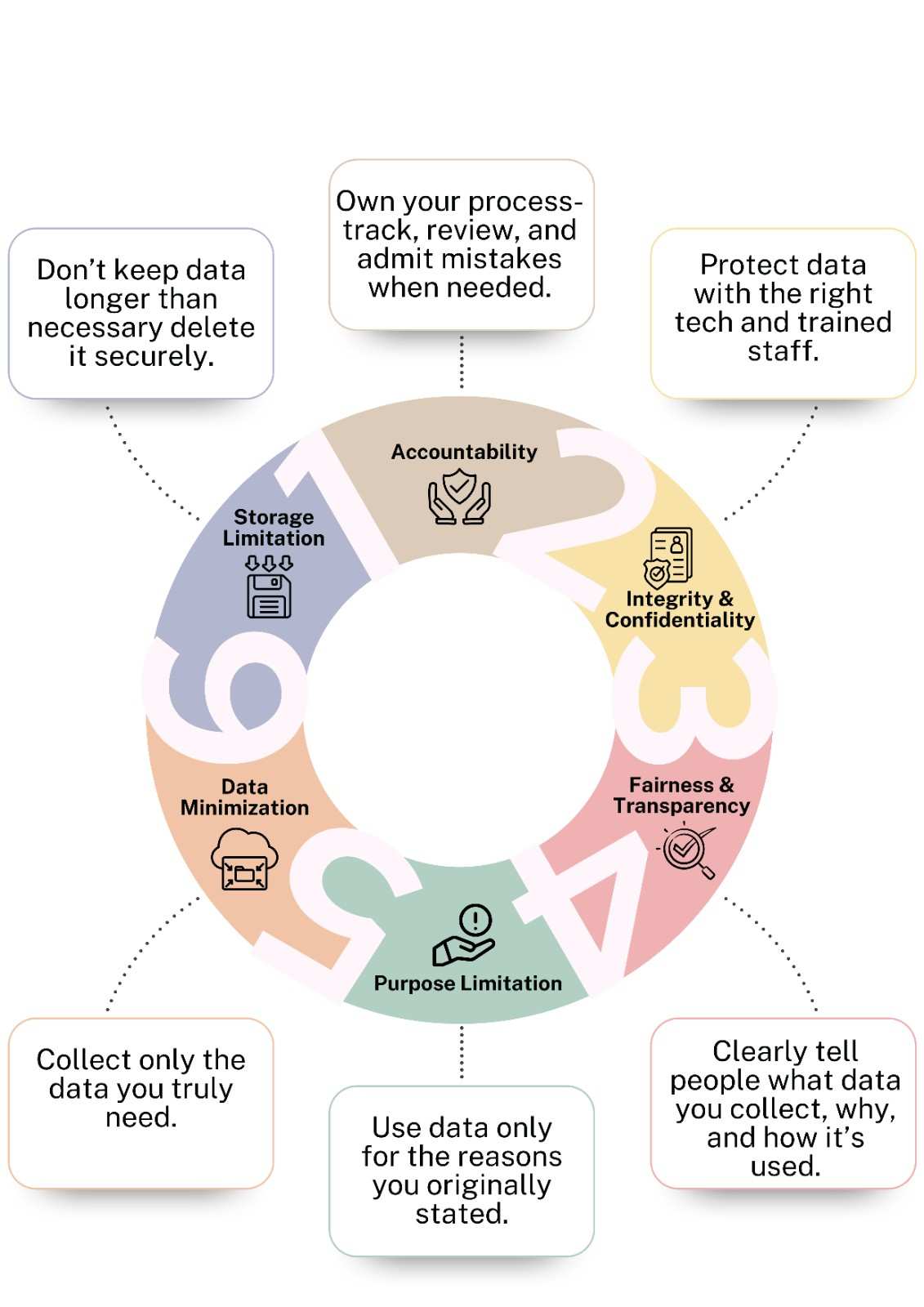
There's no denying it: nowadays, our lives exist online. We purchase, we do our banking, we share photos, we talk to friends, and there's so much of our life that travels in the digital space. Personal information protection is a lot more than a ‘tick box’ exercise – it is all about trust, reputation and doing the right thing by your customers. This is where the General Data Protection Regulation (GDPR) comes in. If you run a business, no matter how large or small, and regardless of where you are located, understanding whether you are complying with GDPR is not helpful, it is essential.
GDPR Readiness Call (15–20 mins)
Clarify scope, data flows, and quick wins for lawful processing and consent capture.
Why Should You Care About GDPR?
GDPR has changed how the world thinks about privacy since it became law in 2018. It’s not just another legal headache for EU-based companies. If you collect or manage the data of someone in the EU, GDPR applies—even if your company is on another continent.
What Makes GDPR Such a Big Deal?
It Builds Trust: More people are asking, “How are you using my data?” GDPR makes it easier to answer, and being transparent encourages customers to stick around.
It Can Save You Money: The fines for ignoring GDPR can reach up to €20 million or 4% of annual global turnover—whichever is higher.
It Opens Doors: Following GDPR signals to partners and customers that you take privacy seriously—unlocking new opportunities.
When you look at it that way, GDPR isn’t an obstacle. It’s a chance to stand out.
The Heart of GDPR: Six Key Principles
Imagine GDPR as the rules for a fair game—these six principles set clear boundaries so everyone knows what to expect.

Follow these steps, and you will be on the path to compliance and success with GDPR.
GDPR and Your Customers: Their Rights, Your Responsibility
GDPR empowers individuals with clear rights. Your customers can expect:
- To See Their Data: Data access on request with a clear, timely response.
- To Be Forgotten: Erasure in defined circumstances—and an obligation for you to respond.
- To Fix Mistakes: Correction (rectification) of inaccurate information.
- To Limit Processing: Temporarily restrict how you use their data while an issue is reviewed.
- To Take Their Data Elsewhere: Portability in a commonly used, machine-readable format.
- To Say No: Object to processing (including direct marketing) that you must honour.
- To Prevent Automated Decisions: Human review of significant automated decisions and profiling.
Upholding these rights is good business. It shows you value the people you serve.
Practical Steps to Rock GDPR Compliance
You don’t need to be a lawyer—these steps get you most of the way there:
- Map Your Data: Where does personal data enter your business (forms, emails, purchases)? Where does it go, who can access it, and how is it stored? Be candid—most teams discover more touchpoints than expected.
- Assign a Data Protection Leader: Not every business needs a formal DPO, but someone must own privacy, training, and incident handling.
- Rethink Your Privacy Policy: Ditch legalese. Explain plainly what you do, why, and for how long—ensure it mirrors actual practice.
- Tighten Security: Patch regularly, use encryption and MFA, and maintain a breach-response plan with notification workflows.
- Get Clear Consent: Use un-ticked boxes; record consent details; re-permission when purposes change.
- Educate Your Team: Bake GDPR basics into onboarding and refreshers to reduce human error.
- Double-Check Vendors: Put controller/processor terms in place; verify safeguards and sub-processor disclosure.
- Risk-Check Big Projects (DPIA): Run Data Protection Impact Assessments for high-risk processing to identify and mitigate issues early.
DPIA & Consent Workshop
Stress-test new products and campaigns; produce lawful bases, ROPA updates, and consent UX patterns.
The Long Game: Why GDPR Pays Off
Getting GDPR right is more than legal insurance—it’s a business win.
Better Data, Better Decisions: Reduce ROT (redundant, obsolete, trivial) data and improve analytics quality.
Reputation Gold: Prove privacy with evidence—records, DPIAs, and measurable outcomes.
Fewer Headaches: Clear governance minimises scramble during audits or incidents.
Global Opportunity: Many regions are adopting GDPR-style laws; building once scales everywhere.
Level Up: Use GDPR as a Competitive Advantage
Automate where possible: Tools for DSAR workflows, consent tracking, and ROPA maintenance save time and errors.
Privacy by Design: Embed minimisation, purpose limitation, and default settings from day one—not as a bolt-on.
Close the Feedback Loop: Ask customers about privacy expectations; iterate policies and UX accordingly. Keep learning via blogs, webinars, and practitioner communities.
So, here is the bottom line, GDPR does not have to be a burdensome sticker on your registration; rather it is an opportunity for you to be a business people can trust, refer and repeatedly return to; no doubt, work on small pieces consistently. Review your company data practices, update your privacy policy, and bring your team around the bend. As you progress through these steps you are creating a safe and reputable business for yourself and your customers.
So, take that first step and deploy on the four pieces discussed, map your data, speak with your team, and think of privacy not as a compliance to 'rule books' but when done right simply as a better way of doing business each and every day.
Want a fast, defensible path to GDPR compliance?
We’ll map data flows, harden controls, and operationalise DSARs so privacy accelerates growth—not slows it.
Talk to CyberCube